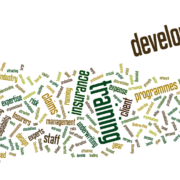Technical Excellence in Insurance
What does an insurance organisation committed to delivering technical excellence look like?
In February 2016 we published some survey research* carried out as a temperature check of the organisational capability that currently exists across the insurance market to drive the development of technical excellence.
Our hypothesis is that one of the most important pre-requisites for successful development of technical excellence is corporate and senior management commitment. The survey response didn’t disagree with this contention at all, but in follow up feedback and correspondence it is clear to us that there is much uncertainty amongst insurance practitioners about what an organisation committed to technical excellence looks like; what does such commitment mean; and how indeed do you recognise that commitment?
What would you expect to see in an organisation committed to technical excellence?
From our experience, there are a number of key facets that we would expect to see in an organisation which has put technical excellence at the forefront of what it stands for.
Strategy – the commitment to technical excellence and an investment in achieving this should be a part of the business strategy and it should include measurable and achievable targets. Perhaps most importantly this part of the business strategy must be articulated and shared internally and externally.
Ownership – there should be clear ownership for the development of technical excellence at Board / Executive level within the business. This responsibility should be included within the job description / objectives of one or more senior leaders who will act as the champion throughout the business.
Vision – there should be a high level understanding of the technical capability across the business – is there visibility and awareness of total capability across the business, e.g. number of underwriters, claims handlers, current capability levels, etc.? Has a capability review been carried out and a Training Needs Analysis prioritised? Are there succession plans in place for all key technical roles across the business?
External perception – does the business have a reputation in the market for technical excellence? Are its people regularly targeted by competitors in recognition of their technical skills? Is the business a ‘go to’ company for industry comment by trade press? Has the business won any awards for demonstrating its technical capability? Do key technical employees hold leading roles in industry trade bodies?
Ongoing Programmes – budgets and resources are allocated for technical training and development. Training programmes are in place specifically aimed at developing technical staff at all levels – introductory, foundation, intermediate, and advanced/expert. Programmes ensure full involvement and commitment of delegates’ line-managers, with serious consideration being given to embedding all technical learning “back on the job”. Measurement of effectiveness of training programmes is in place, with reporting to executive owner.
Individuals – take ownership of own training and development needs. Strong link from all technical training to individuals’ own development plans and performance assessments.
If this commitment really exists then the business will find that this helps to drive a culture for technical excellence throughout the business.
What else might you expect to see in a business where there is a culture for technical excellence?
A corporate culture is often loosely defined as ‘the way we do things’ but quantifying what this means to people is often a challenge for many businesses. In our view, if there is a culture of technical excellence across the business, there would be evidence of some or all of the following:
- Career paths in place that recognise the importance of technical capability right the way up to Board level
- Encouragement and rewards for continuous professional development for technical staff
- Having recognition schemes in place for the achievement of technical excellence
- A positive sharing of information, techniques, etc. across business units and geographies
- Mentoring and coaching programmes for technical staff
- Decisions made by technical staff trusted to be correct by leadership teams
Getting this commitment and culture in place is the heart of any technically excellent company. Without it, there is unlikely to be a consistency across the business in making this happen.
If you would like to discuss any of the subjects covered in this article then please do get in touch.
*For a copy of the full survey report – “The organisational capability in the insurance market to drive the development of technical excellence” – please send an email to enquiries@maptraining.co.uk.











Leave a Reply
Want to join the discussion?Feel free to contribute!